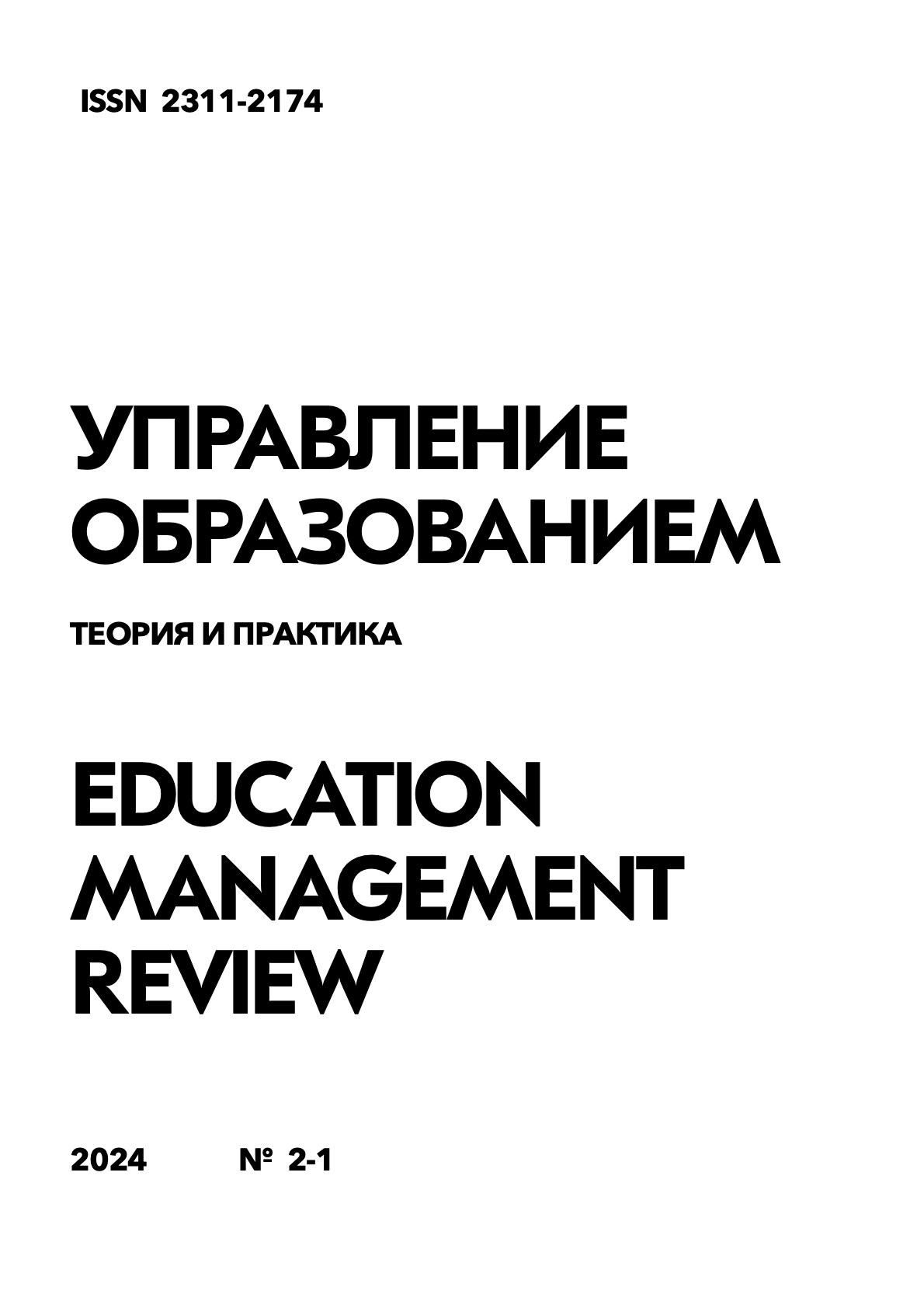The use of information and communication technologies in teaching English in non-linguistic universities: effectiveness and limitations
DOI:
https://doi.org/10.25726/p1722-1028-8330-uKeywords:
information and communication technologies (ICT), English language teaching, non-linguistic universities, learning efficiency, ICT limitations, ICT competence of teachers, individualization of learning, motivation of studentsAbstract
This article is devoted to the analysis of the effectiveness and limitations of the use of information and communication technologies (ICT) in teaching English in non-linguistic universities. In the modern world, ICTs are playing an increasingly important role in the educational process, providing new opportunities to improve the quality of education. However, the issue of the effectiveness of the use of ICT in teaching foreign languages remains insufficiently studied, especially in the context of non-linguistic universities. The research materials and methods include an analysis of the scientific literature on this topic, as well as an empirical study conducted on the basis of three non-linguistic universities in Russia with the participation of 120 students and 15 English teachers. During the research, such methods as questionnaires, interviews, monitoring of the educational process, as well as statistical analysis of the data obtained were used. The results of the study show that the use of ICT in teaching English in non-linguistic universities has both significant advantages and certain limitations. Among the main advantages are increased motivation and involvement of students (noted in 78% of respondents), increased access to authentic language materials (91% of respondents), the possibility of individualization of learning (65% of teachers). At the same time, the study revealed such limitations as the insufficient level of ICT competence of teachers (53% of respondents noted), technical difficulties (68% of respondents), the risk of reducing the role of a teacher in the educational process (37% of teachers). The results obtained indicate the need for a balanced and pedagogically sound approach to the integration of ICT into the teaching of English in non-linguistic universities, taking into account both the potential advantages and possible limitations of this technology.
References
Виноградова Т.В. Домашнее чтение в неязыковом вузе. Упражнения для домашнего чтения и виды активности студентов // Вестник современных исследований. 2018. № 12.1(27). С. 37-40.
Геворгян А.Г., Шустова И.Н. Специфика обучения студентов неязыковых специальностей чтению на английском языке // Вестник Тамбовского университета. Серия: Гуманитарные науки. 2022. Т. 27. № 2. С. 400-409.
Демина В.А. Формирование умений работы с текстом на уроках домашнего чтения // Актуальные проблемы современного языкового образования в вузе: Вопросы теории языка и методики обучения: тез. V междунар. конф. Коломна, 2015. С. 24-25.
Евдокимова М.Г. Профессионально ориентированное обучение иностранным языкам в среде информационно-коммуникационных технологий // Вестник Московского государственного лингвистического университета. Образование и педагогические науки. 2016. № 16(655). С. 41-47.
Жаринова Л.Л. Домашнее чтение как один из аспектов языковой подготовки студентов // Наука Южно-Уральского государственного университета. Секции социально-гуманитарных наук: мат. 66- й науч. конф. Отв. за вып. С.Д. Ваулин. Челябинск, 2014. 1764 с.
Касаткина С.В. Особенности обучения иностранному языку студентов с низким уровнем владения в неязыковом вузе // Мир науки, культуры, образования. 2022. №2(93). С. 103-106.
Крылов Э.Г. Речемыслительная контекстно обусловленная деятельность как основа предметно-языкового обучения в неязыковом вузе // Иностранные языки в школе. 2021. № 5. С. 20-29.
Крылов Э.Г., Сомова К.Д. Фонетические упражнения при обучении студентов технического университета английскому // Вестник ПНИПУ. Проблемы языкознания и педагогики. 2022. № 4. С. 75-86.
Никитина Е.Б. Барьеры в изучении английского языка и способы их преодоления // Человеческий капитал. 2020. № 5(137). С. 123-131.
Перчаткина В.Г., Зиятдинова Ю.Н. Современные онлайн приложения и их роль в саморазвитии студентов вуза в процессе иноязычной подготовки // Национальная ассоциация ученых. 2023. № 86. С. 39-42.
Салье Т.Е., Самсонова Т.И. Домашнее чтение как аспект преподавания иностранного языка для специальных целей. К вопросу о самостоятельной работе студентов // Филологический аспект. 2019. № 5(49). С. 263-266.
Самохина Н.П. Совершенствование навыков чтения студентов в рамках самостоятельной работы посредством домашнего чтения // Проблемы преподавания профессионально-ориентированного иностранного языка в вузе: мат. Междунар. науч.-практ. конф. Отв. ред. Е.Е. Сухова, Т.В. Ризина. Рязань, 2019.
Санакоева З.Г. Эффективные методы и стратегии преподавания иностранных языков в разноуровневых группах // Мир науки, культуры, образования. 2023. № 1(98). С. 62-64.
Тымбай А.А. К вопросу о роли фонетики в программе обучения иностранному языку в рамках высшего профессионального образования (из опыта работы в МГИМО МИД России) // Вестник Моск. гос. обл. ун-та. Сер.: Педагогика. 2019. № 2. С. 144-156.
Царева Л.М., Марченко С.Б. К вопросу о языковом барьере и путях его преодоления // Современные проблемы науки и образования. 2022. № 3.




